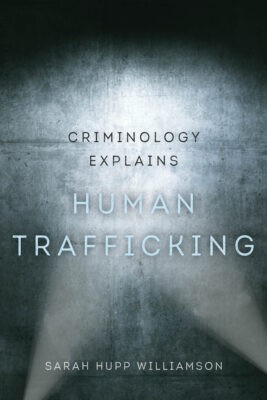About the Book
Criminology Explains Human Trafficking provides a comprehensive and accessible overview of criminological theory as it applies to the topic of human trafficking. Sarah Hupp Williamson uses real-life applications and case studies to highlight the connections between theory, research, and policy. She applies a diverse range of criminological theory to cover different forms of trafficking, victims versus offenders, the role of migration and globalization, domestic and international law, anti-trafficking efforts, and more. Through the use of discussion questions, activities, and policy boxes, students come away with a deeper understanding of theory as it applies to the field of human trafficking, including how various levels of analysis from the local to the global are often linked.

